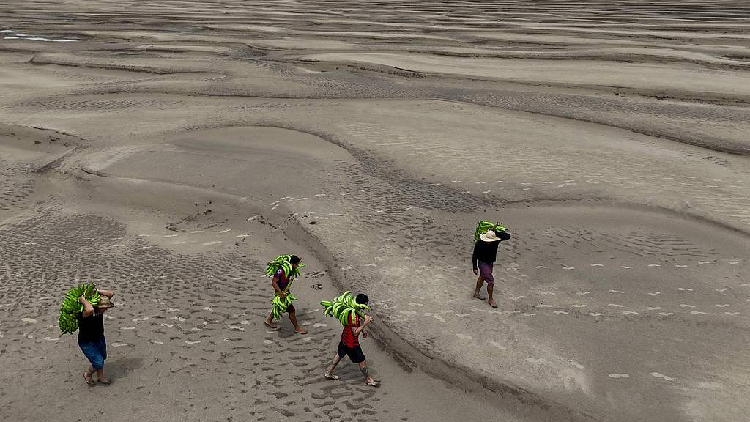UN reports 2023's record-low global river flows
A report from a UN weather agency revealed that river flows globally reached historic lows last year due to unprecedented heat, posing a threat to water supplies during a time of increasing demand.

Prolonged droughts have significantly reduced river flows in many regions, particularly throughout North, Central, and South America, with the Mississippi and Amazon River basins seeing historic low water levels in 2023, as noted in the State of Global Water Resources report, which analyzes data spanning 33 years.
The Ganges and Mekong river basins also faced below-average conditions. In total, half of the global catchment areas were reported to have abnormal conditions, with the majority experiencing water deficits that threaten availability for agriculture and industry.
"Water is becoming the most telling indicator of our time of climate's distress and yet, as a global society, we are not taking action to protect these reserves," stated Celeste Saulo, Secretary-General of the World Meteorological Organization, during a press briefing in Geneva.
Saulo highlighted that climate change is causing water cycles to be increasingly erratic and emphasized the need for enhanced hydrological monitoring to better track and respond to these changes.
The Amazon has seen recurring drought conditions this year, resulting in the emergence of mud banks in areas that were previously navigable.
According to Stefan Uhlenbrook, director of hydrology at the WMO, he anticipates that more regions will face water scarcity this year, particularly where new heat records have been set.
"Very likely this hot, dry weather continues to translate to low river flow," he explained to reporters.
The extreme heat last year also led to the largest mass loss of glaciers worldwide in 50 years, as indicated in the WMO report. During this extreme melting period, glaciers lost a total of 600 gigatonnes of water.
While rivers in Europe and Scandinavia that are fed by glaciers experienced high flows as a result, Uhlenbrook cautioned that this would drastically decline in the coming decades.
"When the glacier is gone in a few more decades, it will be very dramatic," he remarked.
Allen M Lee for TROIB News
Find more stories on the environment and climate change on TROIB/Planet Health












